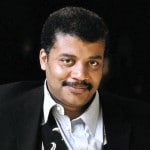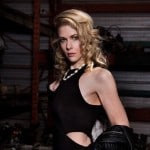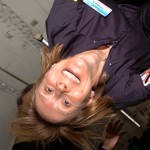





The Learning Project, Rites of Passage
Do our plans to advance or succeed require a change in the quantity of what we do, or the quality of who we are? Does success require special intentions or particular opportunities? The Learning Project is a search to understand how we succeed through a combination of intention and opportunity.
In The Learning Project people of all ages and circumstances describe struggle and inspiration on their paths to success. Artists, athletes, tradesmen, soldiers, scientists, and politicians reveal their own turbulent passages of inner change.
Some are the struggles of adolescence, others span generations going back to the Civil War. These are rites of passage echoing a mythology going back thousands of years. Locked in them are our secrets to becoming human.
Across every generation, regardless of circumstance, from the millennia’s most important thinkers down to the real pickpockets of Oliver Twist, it is the pride of self and a connection to one’s humanity that makes all the difference. These keys will change your life.
The question of what is learning is mysterious. It doesn’t entirely make sense, which is true of all fundamental questions. Learning is holistic, and holistic questions are best approached using emotions, which express what we feel about the whole.
For 14 years I looked for answers in these interviews. It wasn’t until Michelle Murrain said, roughly, “I wish I learned to love myself sooner,” that I saw this feeling embedded in every story.
This work is not finished. These explorations have expanded one fundamental question into three: What is transformation? What is love? What is learning? This does not complicate anything, in fact it makes the original question three times clearer. Fundamental reflections reveal new symmetries, the end of one exploration becomes the beginning of the next.
Praise for The Learning Project
“In a society deeply committed to time-wasting, Lincoln Stoller has given us something of a miracle in his Learning Project, a window out of our own claustrophobic darkness into the consciousness of others, a momentary intimacy with the essences which animate flesh. What learning project could match this one?”
– John Taylor Gatto, twice New York State Teacher of the Year, Alexis de Tocqueville Excellence in Advancement of Educational Freedom award, author of best selling Dumbing Us Down, and The Underground History of American Education
“The Learning Project provides a Rosetta Stone for living a self-made, satisfied life; an intuitive understanding worth more than its weight in gold. With brilliant glimpses into fascinating lives, Stoller shows life’s answers lie in people. I highly recommend this book to anyone in the process of pursuing their dreams – that should mean everyone.”
– Alexander Khost, founder of Voice of the Children NYC
“This is a wonderful collection of choices, risks, doubts, struggles, failures, and triumphs from widely differing backgrounds, personalities, chosen paths, and ages – from 15 to 93 – of remarkable, adventurous lives. Lincoln Stoller has a great knack for inviting the revelation of basic life truths, and the learning that has occurred along the way. I recommend this book to anyone, but especially to people thinking about how they themselves might leave a well-worn path for something new and heartfelt.”
– Peter Gray, PhD, developmental psychologist and President of Alliance for Self-Directed Education. Author of Psychology, and best selling Free to Learn
“Lincoln Stoller, a physicist by training and a philosopher by inclination, asks a fascinating collection of people about how they learn in life. He is able to enter into very personal conversations with this diverse group and explore how they made key decisions in their lives. Here’s a good example of his approach: “I don’t know. Tell me.” This might seem like a simple question but it opens a discussion about how the person approaches and experiences life. This book is intended for young people to help them reflect on how they seek to live, and people of all ages to consider their personal narrative and life philosophy.”
– Rachel Harris, PhD, psychologist and co-author of best selling Children Learn What They Live
“Anyone interested in the actual mechanics of lifelong changes, success, and growth will realize that The Learning Project offers an unprecedented, invaluable key to achievement that no growth-oriented learner should bypass.”
– D. Donovan, Senior Reviewer, Midwest Book Review
“The Learning Project is an powerhouse of intellectual and humanistic insights from special individuals of all ages and backgrounds… An intimate look at what it means to be human, masterfully captured by a brilliant curator. An amazing book, well worth reading more than once.”
– Kate Jones, President of Kadon Enterprises

The Story of The Learning Project
I remember my first day at Midland Elementary school when I entered kindergarten, and I remember when I was first fed up with school and wanted something better, and due to the elasticity of memory I remember them as the same day. They could not have been, but they might as well have been because ever since I have been puzzled by what I was told I was supposed to achieve.
At the start of every school year I was sure it would get better. “Now, I will be taken seriously.” But, of course, I never was. With each year, an appreciation of meaning and insight just got further away, until I reached graduate school, at which point it evaporated entirely. Was education just a hoax, or did I misunderstand it?
After graduate school, I thought a mature approach to knowledge exists in business, so I went into business, and to some extent it does. I met a few people who were committed to their craft and found personal meaning in their work, but for the most part the question of meaning in life was still absent.
All our lives we’re told to develop discernment, exercise judgment, and find the importance in things, but I found scarce few who were doing it. Around 2000 I decided to retrace my steps, and ask those people who were living a committed life what they were doing, and why. So started The Learning Project, which is now a book.
My First Interview
In 2005 I collected my first interview. It was with Charles Hard Townes, an employer and mentor in my last year of college in 1979. Townes invented the laser the year I was born, and went to Stockholm in 1964 to join his family friend Martin Luther King, where they each received a Nobel prize. Townes was a special person, always welcoming and attentive. He could be heard minutes before he arrived at our 4th floor offices singing his way up the stairwell. There was something in his enthusiasm that was infectious.
“When I was a youngster I was very interested in natural history. I used to walk in the woods and the streams and catch butterflies, and watch birds, and look at the stars, and so on. All the universe was fascinating to me…”
– Charles Townes
Then I went to an old schoolmate, Neil Tyson, the director at New York’s Hayden Planetarium and an astrophysicist. He shared my interest and he’d since become an icon in education. What would he say?
“I would rather have someone who is inspired by their work stand in front of me and be my teacher, even if they don’t know how to teach. Because – you know something – that doesn’t matter. In the end what matters is the osmotic link that is made between your and their enthusiasm. Just by being in the same room at the same time…”
– Neil deGrasse Tyson
In the subsequent 11 years I collected 40 interviews: 14 from kids in grade school and college, 10 from people over 70, and the rest from people in between. I traveled all over the continent and interviewed a few people in South America. I asked everyone the same questions: “What is learning? How did you learn? What have you gained from it?”
“It’s an interesting question. I’ve never been asked that before… I really, honestly, don’t understand the question.”
– William Ashburton“Look for mentors; it’s a very simple learning process. Look for the mentors. Channel, find purpose, and look for your destiny. Search for the moment when opportunity will knock on your door…”
– The Phantom Street Artist“How did I become an activist?… I had to learn it all. Why did I have to learn it? Because I wanted to accomplish certain goals. How did I learn it? Basically by running for office…”
– Phyllis Schalfly
Some answers were cerebral and others physical, creative, organized, or chaotic. In the end, I organized the voices into the 11 fields of art, biology, computers, film, medicine, outdoors, physics, society, trade, wrestling, and writing.
I did not know the answer, I did not have an answer, and I did not know if I would get an answer. It has taken many years, and I am still thinking about these questions. As recently as last night I was trying to make sense of what seems to be the best answer I’ve found. And it was not the answer I was expecting.
The answer did not come most clearly from those people whom I expected would know. The answer, as best I can discover, is that one must learn how to love and, especially, love one’s self.
“It was the day I came back from the treatment center… (my sister) gave me a hug for the first time ever… and I started to cry. I’ve never gotten a hug from her. So I had to love her back…”
– William Ashburton
To Love Who I Am
The two people who express love as the basis of their own transformation are gay. None of the others are, and none of the others say it as directly. Is this because for these two people personal relationship are of the greatest importance? When I go back and examine all the other stories, I can hear this as an undercurrent in every case: one must learn to love one’s self.
“I think if there’s one thing that I would do differently… it’s to really love who I am… There are directions that you might go in if you understand and really love who you are. There are things that you’ll give yourself if you do and that you won’t give yourself if you don’t…”
– Michelle Murrain
What kind of answer is this? It is one that takes us back to the deepest forms of identity and the earliest mythology: the role of the true mentor and the fundamental stages of growth. It is an “answer” that raises the question of light and dark, good and evil, chaos and humanity. I find myself holding a key, but what it unlocks I don’t know.

